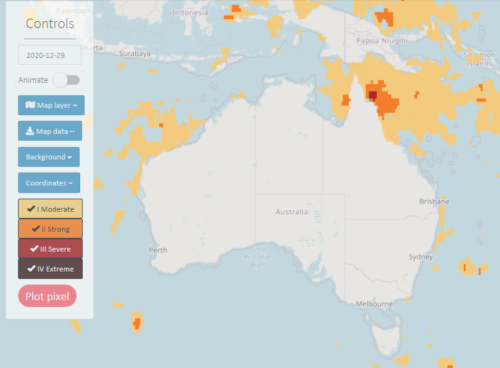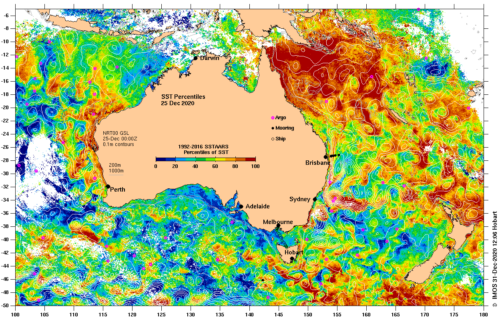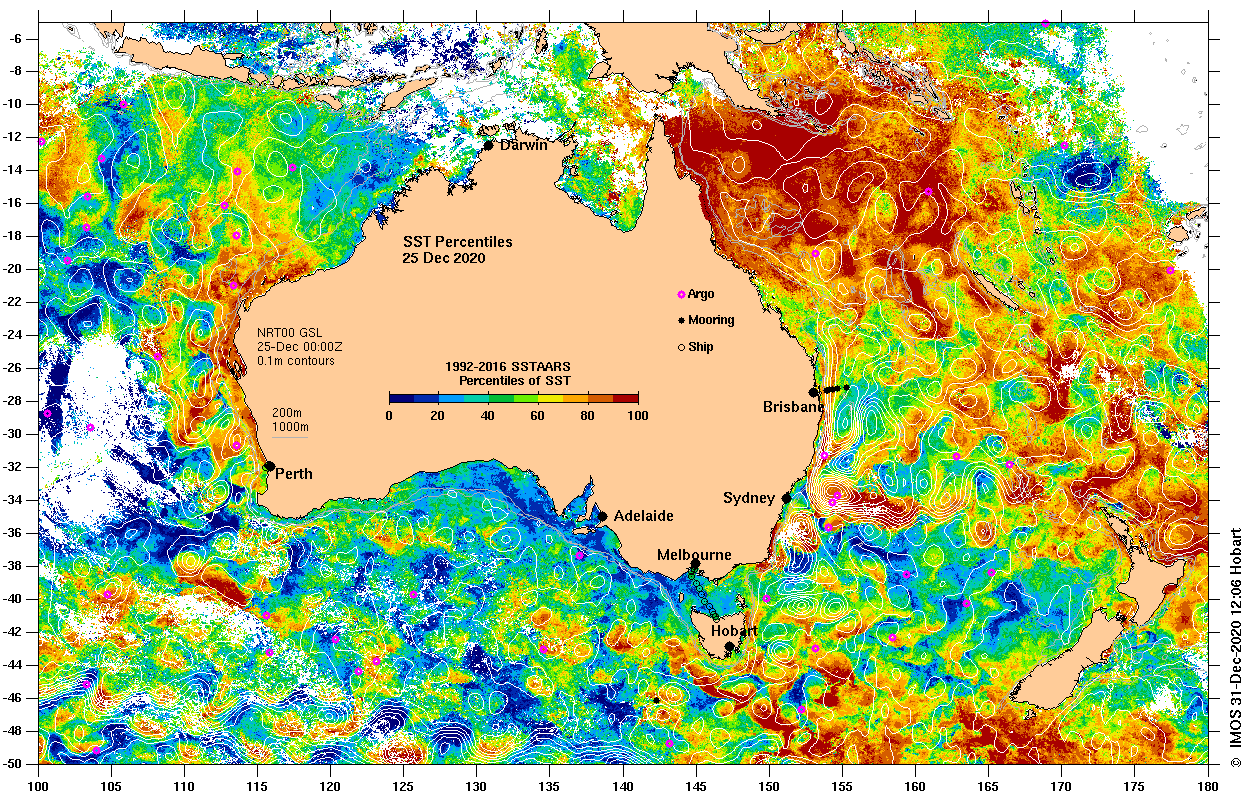Further to previous articles about marine heatwaves, such as UN Report Warns About the Threat of Increased Marine Heatwaves and Surviving a Heat Wave: Your Safety & Strategy Guide, Jessica Benthuysen, “Physical oceanographer at the Australian Institute of Marine Science, Perth” twitter page (@jabenthuysen) often discusses marine heatwaves.
On 31st December 2020, for example, Jessica tweeted, “The Marine Heatwave tracker shows that a marine heatwave emerged off northeast Australia around 19 December 2020. Marine heatwave categories are based on NOAA’s daily OISSTv2.1 near real time, preliminary data. Referenced to a 1982-2011 climatology.”
Jessica’s tweet included this image: –

Hamish Maclean (@HamishinWA) responded to Jessica’s tweet, asking “Are there teams on the ground monitoring this in WA?”
Jessica replied, “Yes, there is a WA Coral Bleaching Group with agency/ university members who monitor conditions and coordinate field activities. Also, through IMOS (Integrated Marine Observing System), we monitor for marine heatwaves and deploy ocean gliders nationally: https://imos.org.au/facilities/oceangliders/event-based-sampling*.”
Dennis Stanley (@possibilize) commented, “This is scary so early in the season. We started December warmer than recent years and this has meant even a short period of calm weather has put us into dangerous territory! prev years and updates at http://reefhavens.pythonanywhere.com .”
The page at http://reefhavens.pythonanywhere.com is a “Live Chart of Reef Water Temperature, Wind and Tide” and “These charts help to highlight the effect recent weather has on the reef temperature, through the role that tides & recent wind have on upper ocean turbulence and mixing”.
The charts are “Updated Daily using data from:
AIMS Agincourt reef weather station
AIMS Arlington reef logger data
Jtide (?) tidal modeling (sic) for green island (sic)
Forecast; NOAA Global Forecast System; obtained from NOMADS data servers”
* According to the page at https://imos.org.au/facilities/oceangliders/event-based-sampling “The IMOS Event Based Sampling Sub-Facility uses Ocean Gliders to monitor marine heatwaves in Australian coastal waters, with up to four deployments per year. The ability of Ocean Gliders to provide high-resolution temporal and spatial observations of sub-surface ocean temperature and their relative portability make them a valuable tool for monitoring marine heatwaves. The ability to measure temperature but also key bio-physical variables (including oxygen, chlorophyll, salinity) aids in understanding the growth, peak and decay of these extreme ocean temperature events and their potential impacts on the marine environment. Data is transmitted from Ocean Gliders in near real-time and available through the Australian Ocean Data Network.”
Jessica also tweeted another tweet on that same day (31/12/20), “Sea surface temperature (SST) percentiles for Christmas 2020. Red is SST > 90th percentile for this time of year. Cool anomaly in the South Pacific from Tropical Cyclone Yasa. Watching closely to see how ocean temperatures change over summer.”
That tweet featured this image: –

My thanks go to past member Peter Harman who has been passing information about marine heatwave studies on to me.


Sounds pretty hi tech stuff.
Obviously very worrying.
I wonder as a parochial aside what amount of similar ocean temperatures data is being collected here in the temperate southern regions. Hopefully plenty.
Especially as my simplistic understanding is that the temperate SE Australian seas are the worst affected ,perhaps even globally,in reef health terms (looking at this separately from the melting ice caps issue,although obviously they are connected).
Worst as in the speed and absolute amount temperature rise .
I understand why everyone is worried about what this means for coral reefs.
I have equal or greater concern about the effect of rising ocean temperatures on the Great Southern Reef.